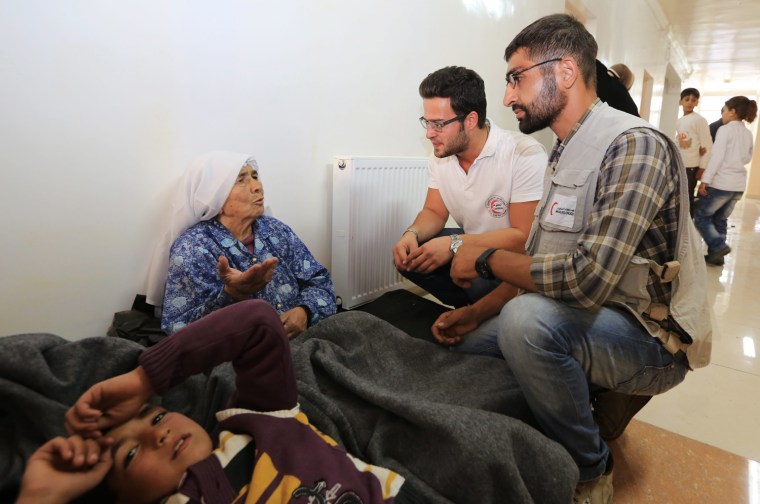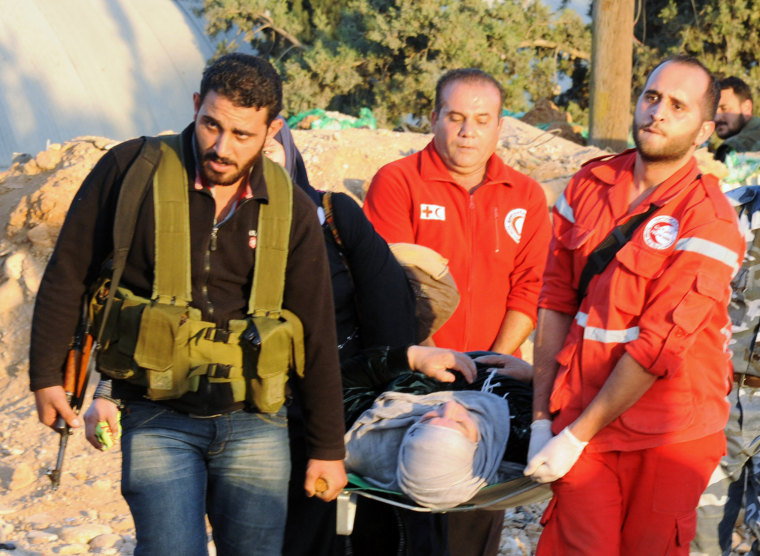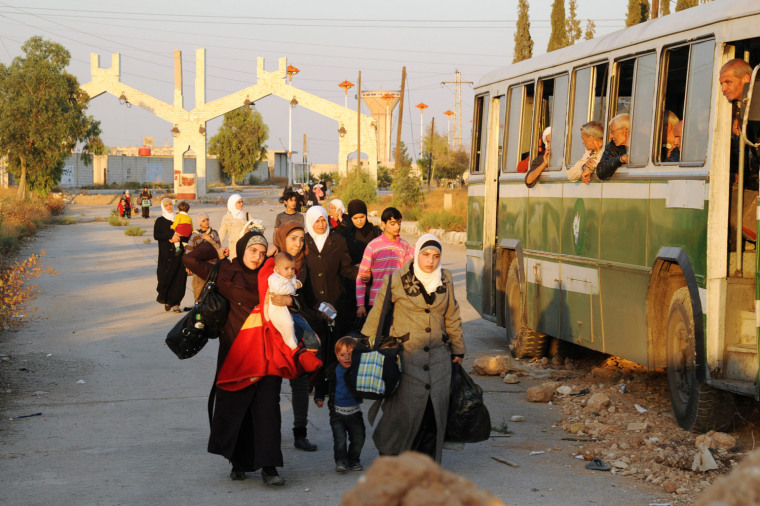
The kidnapping of seven aid workers further complicates the prodigious humanitarian challenge in war-ravaged Syria, where the Red Cross and other groups are desperately trying to get food, water and other emergency help to millions of people.
Four of the seven were freed, and the Red Cross said Monday that the Syrian authorities had allowed 2,000 people, including women, children and elderly men, to leave a besieged town outside Damascus, the capital.
Some organizations said that the situation in Syria was so delicate, in light of the kidnappings, that they could not discuss their operations. But others around the world warned that their work, vital but perilous, was clearly becoming more difficult.
The civil war in Syria, more than two years old, has left entire towns in ruin and reduced schools to rubble. Of 91 public hospitals in the country, 55 have been damaged or destroyed, according to Doctors Without Borders.
Czech People in Need, one of the few organizations working in Aleppo, the largest city in Syria, said that previously its foreign staff spent 80 percent of its time in Syria. Because of the increased kidnapping risk, it has not been inside the country for four weeks.
“You have to be aware,” Jitka Škovránková, who works for the organization, told Reuters. “It’s not slowing the operation, but it’s more difficult to get the operation done.”
Six of the seven kidnapped worked for the International Committee of the Red Cross, and the seventh was a local volunteer. They were traveling in Syria on Sunday when gunmen blocked them, shot at their convoy, seized them and spirited them away.
Robert Mardini, head of Middle East operations for the Red Cross, said on Twitter on Monday that four of the seven — three from the Red Cross, plus the local volunteer — “have been released safe & sound.” There was no immediate word on the fate of the other three.
The Red Cross used the opportunity to talk about its increasing concern for the people of a rebel-held town outside Damascus called Moaddamiyah. Opposition leaders say the forces of Syrian leader Bashar Assad have laid siege to the town for months.

A Red Cross-affiliated group called Syrian Arab Red Crescent is providing the 2,000 people allowed to leave the town with food and water, but the Red Cross said that thousands more were left behind, and in dire need of medical care.
And Moaddamiyah is but one broken corner of a shattered country. Kidnappings are increasingly common in the northern section, where rebels have captured swaths of ground but government forces cling to cities.
The humanitarian crisis generated by the civil war is of almost incomprehensible proportion. The United Nations has estimated 5 million people are displaced inside the country, 2 million more forced out.
That is in addition to an estimated 100,000 killed.
Because most doctors have fled the country and because international organizations face such danger getting their own people in, dentists are performing surgeries and pharmacists are treating patients, according to Doctors Without Borders.
Health workers have been killed, tortured and threatened, the organization said, and 22 volunteers for the Syrian Arab Red Crescent have been killed since the war began.
Christopher Stokes, general director of Doctors Without Borders, said in a statement Monday that the dire situation requires a “massive political mobilization” similar to what occurred around Damascus’ arsenal of chemical weapons, which is currently being assessed by international experts before being destroyed.
“(The) Syrian people are now presented with the absurd situation of chemical weapons inspectors driving freely through areas in desperate need, while ambulances, and food and drug supplies organized by humanitarian organizations, are blocked,” Stokes said. “Influential countries gathered around a table, thrashed out an agreement on chemical weapons, and put it into practice. ... So where are the efforts to repeat this success with the burning issue of access for humanitarian aid?”
For humanitarian groups, the challenge is growing in part because the Syrian rebels are losing ground in some parts of the country to an al Qaeda-affiliated organization known as ISIS, which is stepping into the power vacuum and imposing Islamic law.
Partly because of fighting among al Qaeda-liked groups, the rebels and Kurdish groups along the Syrian-Turkish border, there are no open border crossings in the two sections of Syria where the Czech group works.

The group is working with Turkish border police and the Turkish Red Crescent to move supplies across dirt roads, Škovránková said.
Aid groups are adapting by working contacts on both sides of the civil war, the government and the rebels. But control of various areas charges all the time, so it can be difficult to determine who is in charge.
“The armed opposition are very fractured, and we have to deal with groups of different shades,” said Sean Maguire, the British spokesman for the International Committee of the Red Cross.
The government in Damascus has complicated humanitarian efforts by rejecting visas and blocking convoys, according to aid organizations. Syrians say that people living in rebel-held zones are particularly deprived.
The challenges have remained despite diplomatic progress on Syria. The United States and Russia struck a deal last month that provided the framework for ridding Syria of chemical weapons, but the war itself wears on.
The 15 countries of the U.N. Security Council earlier this month unanimously demanded that all parties in the civil war stop blocking humanitarian help, and quit targeting schools and hospitals.
Millions of Syrians need help immediately, the countries said in a declaration: “Without urgent increased humanitarian action, their lives will be at risk.”
Madeleine Haeringer of NBC News contributed to this report. Reuters also contributed.